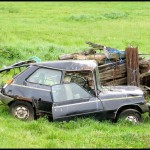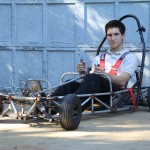Ticket prices of planes versus trains in Europe (pdf). [Greenpeace] “By analysing 112 European routes and comparing air and rail fares on 9 different days for each route, this report shows the extent to which European citizens are being encouraged to fly. It also identifies the reasons for these outrageous price differences and proposes solutions to make rail competitive on all routes.”
Crosswalks and pedestrian safety: What you need to know from recent research. [Journalist Resource]
The relationship between cycle track width and the lateral position of cyclists, and implications for the required cycle track width. [Journal of Safety Research] “Given a cyclists’ lateral position while meeting, common variations between cyclists’ steering behavior, and vehicle width and circumstances, a cycle track width of 250 cm is needed for safe meeting maneuvers.”
“Electric Vehicles”: Arthur Berman, Simon Michaux & Pedro Prieto. [The Great Simplification] “Are current EV initiatives taking a science-based systems approach towards this massive economic, environmental, and cultural shift or are they rooted in energy blindness?”
Retro Style Velomobiles (video). [Glowing Ray] “Velocar was the name given to velomobiles made in the 1930s and 1940s by Mochet et Cie of Puteaux, France and colloquially to the company’s recumbent bicycles.”





